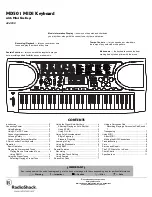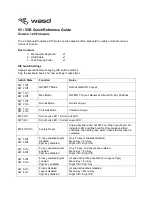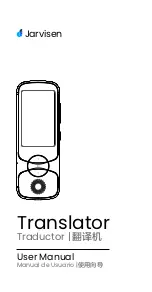
t
t
t
t
CV2
This 3,5 mm jack socket is the control voltage output of the
A-100CGK
that is
controlled by the velocity of the key pressed on the keyboard. The voltage range is
0...+5V. There are no fixed rules how to connect this socket to CV inputs of A-100
modules. For example it can be connected to the CV input of a VCA (voltage
controlled amplifier, e.g. A-130, A-131, A-132-x) to control the loudness of a patch by
the keyboard velocity. But it can be used also to control the frequency of a VCF
(voltage controlled filter), the tempo of a VCLFO (e.g. A-147), the modulation depth
of an LFO or ADSR (via an VCA), the left/right panning (A-134), or to control any
other voltage controlled parameter of an A-100 module.
❽
❽
❽
❽
CV3
This 3,5 mm jack socket is the control voltage output of the
A-100CGK
that is
controlled by the after touch sensor of the keyboard. Even for this CV output there
are no fixed rules how to connect it to A-100 modules. The same remarks as for CV2
are valid.
The After-Touch sensor is a pressure sensor that is positioned below the keys of the
keyboard. It can be used to generate an additional voltage that is controlled by the
pressure applied to the currently pressed key. The sensor is not very sensitive (e.g.
compared to the pressure sensor of the A-198/R2M manual). We have no influence
to the sensitivity of the sensor as it is installed by the keyboard manufacturer (Fatar).
You should treat it as a free add-on.






























